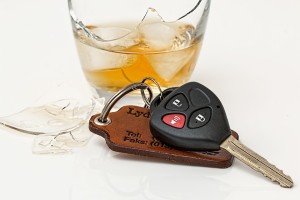 In October of 1971 an off-duty Montgomery County Police Captain was shot while working as a security guard. Law enforcement arrived at the scene shortly after the shooting, but the officer succumbed to his injuries three days after being shot. Numerous suspects were interviewed, but no arrests were made and the case had remained cold for decades. Last October marked the 50th anniversary of the homicide, and police detectives decided to take a fresh look at the case in hopes that a new set of eyes could finally bring justice to the family of the fallen officer. After reviewing the voluminous files and hours of recordings, the detectives honed in on a then 19-year-old witness who had given a statement to police shortly after the shooting, but had never been labeled as a suspect. A recording of this witness’ interview with police was sent to the FBI where technicians were able to convert the old tape into a digital format. The digital recording was clear enough for detectives to determine that the witness knew more about the incident than was possible- unless he was involved in the shooting. This witness also had a criminal record, lived near the scene of the crime and subsequently changed his name. Detectives then spent weeks trying to track the witness down, and finally located him living and allegedly quiet life in Upstate New York.
In October of 1971 an off-duty Montgomery County Police Captain was shot while working as a security guard. Law enforcement arrived at the scene shortly after the shooting, but the officer succumbed to his injuries three days after being shot. Numerous suspects were interviewed, but no arrests were made and the case had remained cold for decades. Last October marked the 50th anniversary of the homicide, and police detectives decided to take a fresh look at the case in hopes that a new set of eyes could finally bring justice to the family of the fallen officer. After reviewing the voluminous files and hours of recordings, the detectives honed in on a then 19-year-old witness who had given a statement to police shortly after the shooting, but had never been labeled as a suspect. A recording of this witness’ interview with police was sent to the FBI where technicians were able to convert the old tape into a digital format. The digital recording was clear enough for detectives to determine that the witness knew more about the incident than was possible- unless he was involved in the shooting. This witness also had a criminal record, lived near the scene of the crime and subsequently changed his name. Detectives then spent weeks trying to track the witness down, and finally located him living and allegedly quiet life in Upstate New York.
Montgomery County homicide detectives traveled to New York to attempt to interview the witness, and left with a confession to the 51-year-old shooting. The witness turned defendant, who is now 70 years old, apparently admitted to detectives that he was committing a burglary in the area, when the off-duty police captain intervened as he was attempting to flee in a getaway vehicle. The defendant claimed the shooting was accidental, but nonetheless detectives immediately applied for an arrest warrant for first-degree murder. An arrest warrant was issued that same day, and the defendant was taken into custody in New York. He was officially served with the warrant upon arrival at the Montgomery County Detention Center one week later. He was denied bail by a District Court Commissioner at his initial appearance, and again by a District Court Judge at his bail review. A preliminary hearing is set for this Friday, but the defendant will almost certainly be charged in the Circuit Court.
This case brings up a host of interesting legal issues. One involves the statute of limitations, which under Maryland law varies greatly depending on the crime. Almost all felonies including murder, first-degree assault and robbery have no statute of limitations, and the state could prosecute at any time. Many misdemeanors have a 1-year statute of limitations, but there is no limit if the crime is punishable by a prison sentence. In Maryland a prison sentence is a year and a day or more, so any crime with a maximum penalty of 18 months or higher can be charged at any time. This means common misdemeanor crimes such as second-degree assault and fourth degree burglary have no statute of limitations in Maryland. There are several crimes that carry two and three-year limitations such as manslaughter by vehicle, tax offenses, election law violations and Medicaid fraud that carry a 3-year limit. Crimes charged under the Natural Resources Article and fraudulent driver’s license crimes carry a 2-year limitation.
 Criminal Defense Lawyer Blog
Criminal Defense Lawyer Blog










